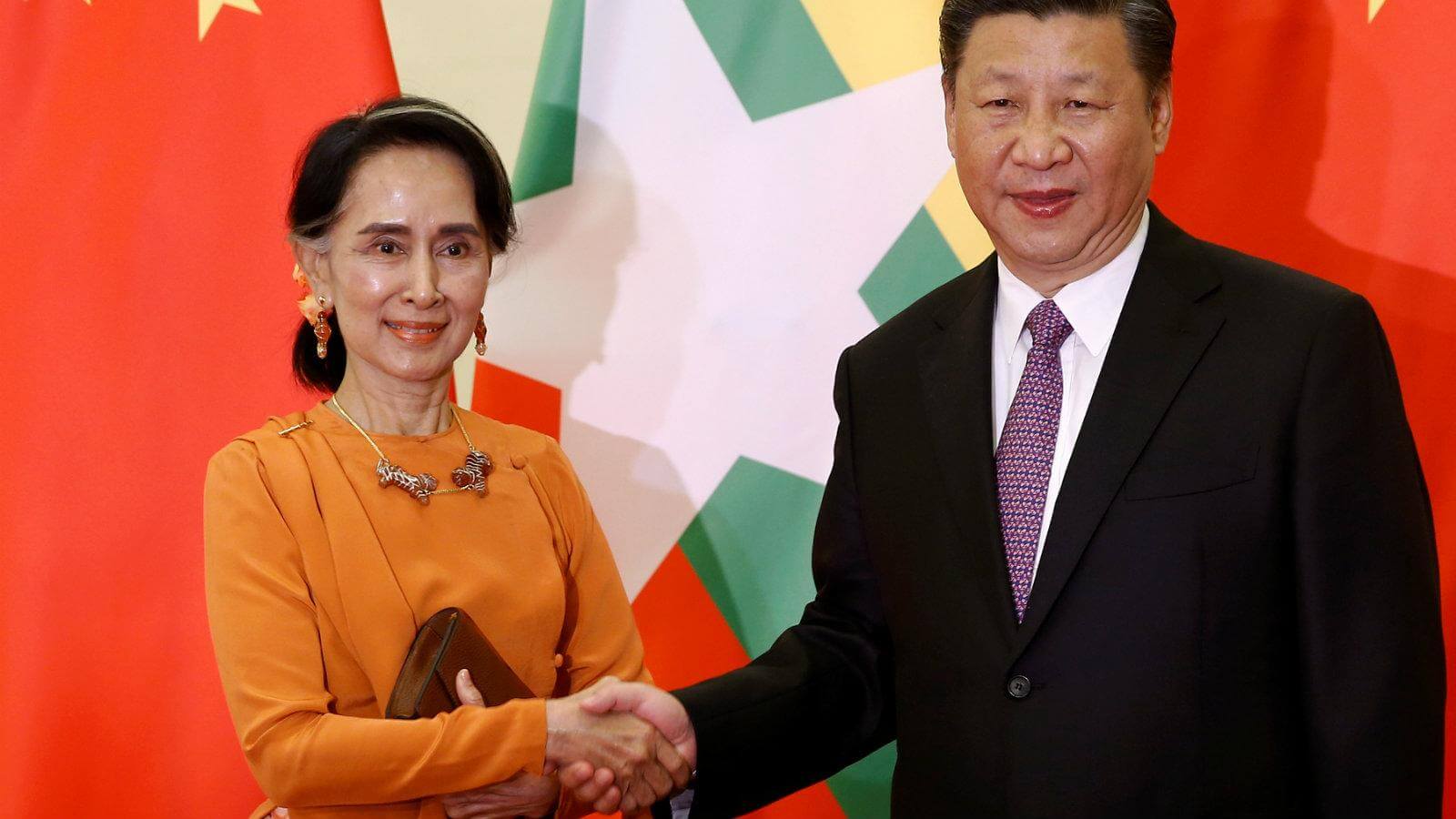China is currently in the process of building a wall along its 2000-kilometre-long southern border that it shares with Myanmar, purportedly with the aim of curbing illegal crossings. While Myanmar has opposed the construction of this barbed wire wall, China is resolute in its decision and has already finished building 659 kilometres of the structure. According to Beijing, the fence is being built to prevent the spread of the coronavirus.
Images circulating on social media show the 6 to 9 foot barbed-wire steel fences separating the two countries, running through the town of Wanding and the city of Ruili—both of which fall in China’s southwestern province of Yunnan. It is not clear whether the wall is supposed to prevent illegal immigrants from entering into China or deter Chinese dissidents from fleeing the country, but Chinese state-owned news outlet Global Times has asserted that it is the former.
According to Myanmar, the infrastructure was built from December 13, and without any prior notice given to Yangon. Further, it also violates the 1961 treaty between the two, which mentions that neither neighbour can build infrastructure with 10 metres of the Demarcation Line. Myanmar military and officials in Kokang, a self-administered zone in northern Shan State, have both previously stated their dissatisfaction over the wall’s proximity to the demarcation line through letters written to Beijing, but to no avail.
The move reflects China’s increasing expansionist activities in the region, which are only expected to increase in the coming years. The United States (US), which has been growing increasingly wary of Chinese activities, has expressed its concerns about the fence construction, but it is likely to go unheard by Beijing.
Since the 1980s, illicit trade has thrived across the porous China-Myanmar border. Traded products include jade, luxury hardwoods, stolen vehicles, and even contraband substance like chemical precursors for methamphetamine, which is then mass-produced in the many labs throughout Shan State. Additionally, the fence is also expected to control the large volume of illegal immigrants that regularly cross the border, including migrant workers and day traders, as well as women from Myanmar who are taken to China for marriage. The loosely patrolled border has also served as an escape route for ethnic Uyghurs, who are a suppressed religious minority in the country, to seek asylum outside of China.
A major project under China’s Belt and Road Initiative (BRI) is the 1,700-km China-Myanmar Economic Corridor (CMEC). Only nine of the 38 infrastructure projects have received approval so far. The projects would link the Yunan province with the strategic deep-sea port of Kyaukphyu in Myanmar’s Rakhine province, providing China direct access to the Bay of Bengal. Reports of a wall being constructed along the shared border of China and Myanmar only go to illustrate how Yangon’s dependency on Beijing has allowed China to use BRI projects to leverage its control over Myanmar.
China Builds Great Southern Wall Along Its Border With Myanmar
Media reports allege that China has already built 659 kilometres of a wall along its 2000-kilometre-long border with Myanmar.
December 18, 2020

SOURCE: QUARTZ INDIA
